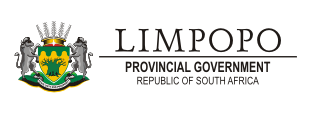
Government implements lifestyle audits
Marble Hall- Fraud and corruption in the Public Service will always be problematic, counter-productive, and devastating, especially in young democracies and developing countries. Although government introduced and continues to add various forms of controls, the persistence of criminals continuously challenges these controls for self-enrichment.
The compulsory lifestyle audits that were introduced in April last year are already being implemented across the public service space.
The Limpopo Provincial Government in conjunction with the Department of Public Service and Administrations (DPSA) have conducted a Provincial Ethics and Lifestyle Audit Workshop on Wednesday,03 August 2022, at Schuindraai Nature Reserve outside Marble Hall, Ephraim Mogale Local Municipality.
As Heads of Departments are mandated by the Public Service Regulations, 2016 regulation 22 to conduct lifestyle audits, it is important for all the key role players to be capacitated on the processes required to implement lifestyle audits in their respective departments. The workshop was therefore a platform to promote ethics and the use of Lifestyle Audit in order to introduce the Provincial Ethics Workstream appointed in support of the Departmental Ethics Committees.
It (Workshop) is also a requirement in terms of the Guide on implementing lifestyle audits in the public service which enables departments to identity conflicts of interests such as employees’ performing other remunerative work or conducting businesses with the state and unexplained wealth which will be reported for criminal investigations.
Therefore, a Lifestyle Audit is a significant tool that assists government as an employer to reduce the risk of corruption by identifying possible unexplained wealth as a proactive measure. It is generally expected that an individual’s lifestyle or wealth should be in line with their income. In cases where it appears that employees have a lifestyle or wealth that cannot be explained, the employer can use lifestyle audit process to ensure that the lifestyle or wealth is not as a result of corruptions or other malfeasance.
And with this regard, the DPSA also held a workshop back in June on how to support affected departments to report cases of employees conducting business with the state.
According to the DPSA Minister Miss Ayanda Dlodlo, the lifestyle audits in the public service became compulsory with the adoption of the Guide to Implement Lifestyle Audits in the Public Service and its main target is amongst others those expensive brand-wearing public servants who clearly live beyond their means.
All head of Departments has the mandate to conduct lifestyle audit or their delegates (notably Ethics Officers and Investigators) provides for a head of department to analyze ethics and corruption risks as part of the departments system of risk management.
In terms of the process, Ethics Officers who in some cases are Human Resource (HR) officials who conduct Disclosure, identify red flags through a lifestyle review and in those cases that require to further investigations to report the matter to Internal Risk or Integrity Management for further lifestyle investigations.
Should it be necessary, based on the complexity of the case, the investigations could be supported by auditors through a lifestyle audit.
The lifestyle review report that found evidence of unexplained wealth will be used as a basis to request a lifestyle investigation or audit from where charges can be instigated as well as disciplinary actions.
Depending on the gravity of the case, disciplinary steps could lead to the dismissal of an official and in the case of potential fraud or corruption in which case criminal cases will be laid and should the person be found guilty, they may face prison terms.
By: Maano Nekhavhambe
